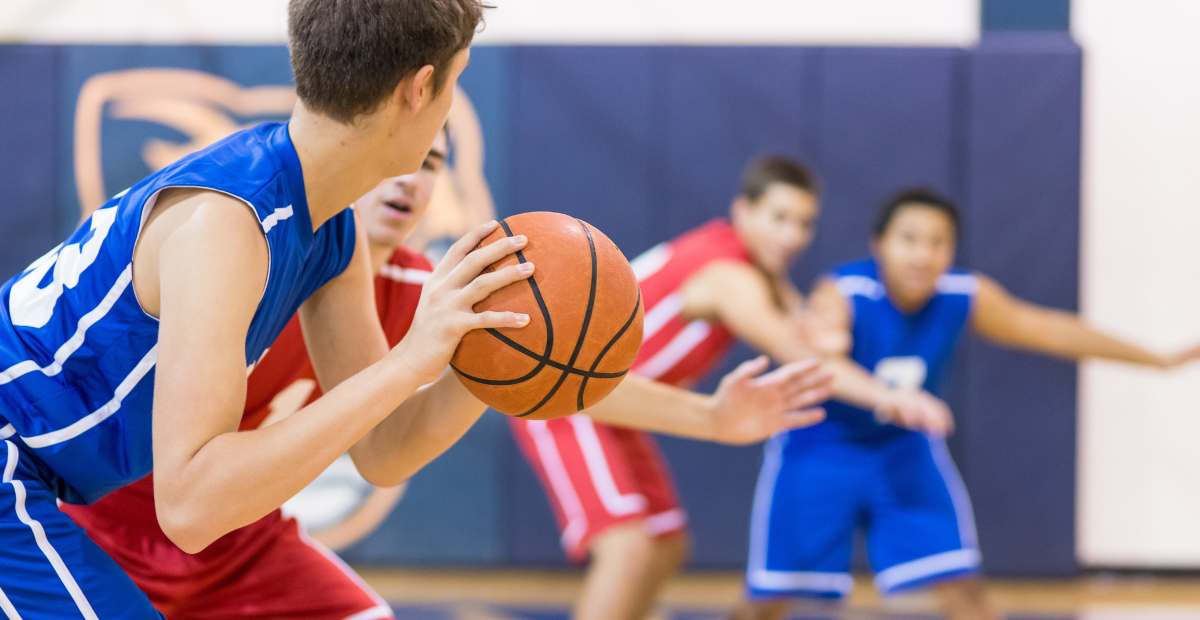If you’ve ever been to a youth sports game, you’ve probably noticed it—some parents are really into it. They’re pacing the sidelines, yelling at refs, acting like their kid’s flag football game is the Super Bowl. And hey, I get it (and do it, too)! We all want to see our kids succeed (bring home another championship ring!).
But, here’s the thing: most kids aren’t going to go pro. They might not even play in college. And that’s okay—because winning isn’t the most valuable thing kids get out of sports.
What really matters are the life skills they build while playing—skills that will help them in high school, in their first jobs, in their careers, and in relationships. Sports teach kids how to work hard, communicate, handle pressure, and bounce back from failure—skills that will serve them for life, even if they never touch a ball again.
So, let’s talk about why just playing the game (win or lose) helps kids in the long run.
1. Learning to Work as a Team (Even in Individual Sports)
Whether it’s soccer, basketball, volleyball, or tennis, all sports teach kids how to work with others.
✔ Team sports like soccer or basketball help kids learn to communicate, collaborate, and compromise—essential skills for school, work, and relationships.
✔ Even individual sports like swimming or tennis still require kids to work with coaches, training partners, and teammates, learning to support and encourage others.
These lessons go way beyond the field. In life, they’ll need to work with people who think differently than they do. Learning to communicate and function as part of a team will help them in school projects, their first jobs, and even managing family life one day.
💡 Real-Life Lesson: Working with others—whether you like them or not—is a skill every adult needs.
2. Handling Pressure and Performing Under Stress
That last-second free throw.
The overtime penalty kick.
The final down of the game.
Sports put kids in high-pressure situations where they have to think fast, stay calm, and perform.
And guess what? That skill translates directly into real life.
📌 Job interviews
📌 Big presentations
📌 College exams
📌 Managing stressful situations at work
Learning to stay focused under pressure will help them handle stress, make quick decisions, and bounce back when things don’t go as planned.
💡 Real-Life Lesson: Pressure is part of life—sports teach kids how to stay calm and confident when it matters most.
3. The Discipline of Hard Work and Practice
In sports, natural talent only takes you so far—the real magic happens in practice.
💪 Repetition builds skills.
💪 Showing up on hard days builds resilience.
💪 Effort (not talent) creates improvement.
Kids who play sports learn that results don’t happen overnight. They see firsthand that progress comes from consistent effort, showing up even when they don’t feel like it, and pushing through tough moments.
And guess what? That work ethic carries over into school, careers, and life in general.
💡 Real-Life Lesson: Success isn’t instant. Learning to work hard and push through challenges is what gets you there.
4. Winning and Losing with Grace
Every kid who plays sports will lose at some point. And that’s a good thing.
✔ Losing teaches resilience. (How to pick yourself up and try again.)
✔ Losing teaches reflection. (What can I do better next time?)
✔ Losing teaches sportsmanship. (Congratulating the other team even when it stings.)
And on the flip side, winning isn’t just about celebrating—it’s about staying humble.
✔ Winning teaches confidence. (Hard work pays off.)
✔ Winning teaches appreciation. (Recognizing the effort it took to get there.)
✔ Winning teaches leadership. (Encouraging others instead of rubbing it in.)
Handling both success and failure with grace is something every adult needs to learn. Sports give kids a safe place to practice that.
💡 Real-Life Lesson: Whether it’s a job promotion or a rejection, knowing how to win and lose with character is an essential life skill.
5. Time Management and Responsibility
Balancing practices, games, schoolwork, and life forces kids to learn time management early.
⏳ They figure out how to prioritize.
⏳ They learn to manage their schedules.
⏳ They understand the importance of showing up on time and being prepared.
Sports also teach accountability. If a kid skips practice or slacks off, they feel the consequences—maybe they don’t get as much playing time, or their team struggles. That kind of responsibility is invaluable for future jobs and commitments.
💡 Real-Life Lesson: Learning to manage time and be accountable sets kids up for success in school, careers, and beyond.
6. Building Confidence and Self-Belief
Sports push kids outside their comfort zones and show them what they’re capable of.
🎯 That first time they score a goal.
🎯 That moment they finally master a new skill.
🎯 That game where they realize they belong on the team.
All of these experiences help kids build confidence—not because they win every time, but because they see their own progress, effort, and improvement.
And when kids believe in themselves, they take more chances, bounce back from failure faster, and aren’t afraid to try new things.
💡 Real-Life Lesson: Confidence built in sports carries over into everything—school, jobs, relationships, and beyond.
The Big Picture: Why Sports Are Worth It
Not every kid will play in college.
Not every kid will get a scholarship.
Not every kid will win a championship.
And that’s okay.
Because sports aren’t just about winning—they’re about learning skills that last a lifetime.
🏆 Teamwork & communication → Essential for school, careers, and relationships.
🏆 Handling pressure → Helps with tests, job interviews, and life’s stressful moments.
🏆 Hard work & discipline → Translates into career success and personal growth.
🏆 Winning & losing with grace → Builds resilience for all of life’s ups and downs.
🏆 Time management & accountability → Prepares kids for responsibilities in the real world.
🏆 Confidence & self-belief → Gives them the courage to take on new challenges.
So whether your child is a star player or just enjoys being part of the team, the experience of playing sports will help them far beyond the game.
And as parents, we can remind them that it’s not just about the scoreboard—it’s about the lessons they’re learning along the way.
Final Thoughts
When we sign our kids up for sports, we might hope for wins, trophies, and great memories—but what they’ll really gain is so much bigger than that.
They’re learning to work hard, push through challenges, believe in themselves, and handle both wins and losses with grace.
And those are skills that will stay with them long after they hang up their jerseys.





Leave a comment
All comments are moderated before being published.
This site is protected by hCaptcha and the hCaptcha Privacy Policy and Terms of Service apply.